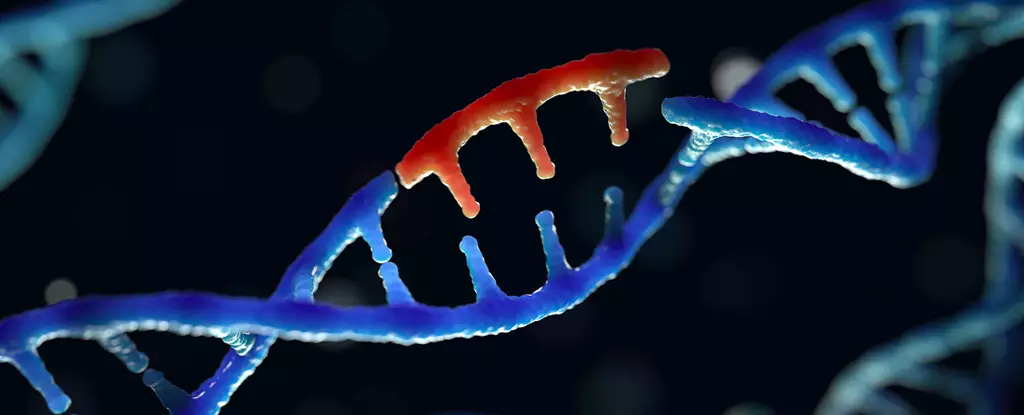In recent years, researchers have made a startling discovery – viruses that once invaded our ancestors are still lingering in our DNA, potentially playing a role in cancer. These viral fragments, known as endogenous retroviruses (ERVs), were previously dismissed as ‘junk’ DNA, but we are now realizing their significance. University of Colorado bioinformatician Atma Ivancevic and his team have uncovered that cancers can hijack these ancient virus parts for their own benefit.
ERVs have been pivotal in the evolution of mammals, including humans. They played a crucial role in the development of the placenta, which is essential for the survival of mammalian offspring. However, as with many things in biology, ERVs come with a price. Researchers are just scratching the surface in understanding the complex interplay between these dormant viral sequences and human health.
A groundbreaking study conducted on colorectal cancer tissues shed light on how an ERV named LTR10 can influence the expression of genes involved in tumor growth. By deactivating the ‘undead’ genes derived from LTR10 in both human colorectal tumor cells and mice, researchers were able to inhibit the expression of cancer-promoting genes. This discovery opens up new possibilities for improving cancer treatments by targeting these viral remnants.
Ivancevic and his team found that LTR10 acts as an epigenetic switch, controlling the expression of genes linked to therapy resistance and tumor growth. By manipulating these switches, scientists were able to enhance the effectiveness of treatments in mice. This highlights the potential of targeting ERVs as a novel approach in cancer therapy.
While this study provides valuable insights into the role of ERVs in cancer, there is still much to uncover. Further research on patient-derived organoids is essential to validate the connection between specific genes controlled by ERVs and cancer progression. As we age and our immune defenses weaken, the reactivation of dormant virus fragments may contribute to a range of health issues, underscoring the need for continued investigation into this intriguing mechanism.
The intricate relationship between ancient viruses and cancer represents a fascinating area of study in modern biology. By delving into the hidden world of ERVs, scientists are unveiling a new dimension of cancer biology that holds promise for innovative therapeutic strategies. As we delve deeper into our genetic heritage, we may uncover even more surprises lurking within our genomes.


Leave a Reply